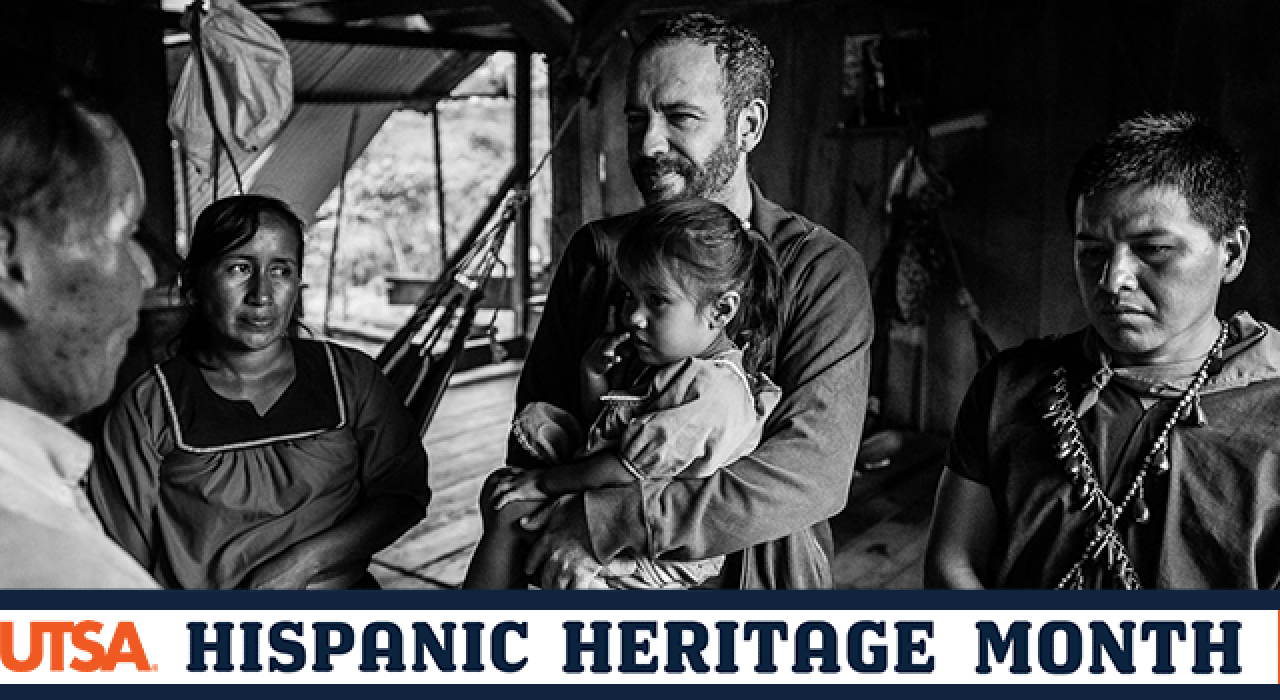In a village in the foothills of Ecuador’s Andes mountains, Cesario Lucitante, a shaman in the Cofán Nation, prepares for his healing ritual. He drinks the hallucinogenic ayahuasca, and the session begins. In a small wooden hut dimly lit, he chants and crunches in his mouth what sounds like gravel, and for hours he performs ancient healing rites to extract the illnesses that reside within his patient.
When we think of Indigenous shamans, it’s common for us to think of healing rituals such as this, but our ideas are often simplistic and one-dimensional. As Michael Cepek, professor of anthropology in the UTSA College of Liberal and Fine Arts, dives deeper into his understanding of the Cofán people, the expansive and complex knowledge of the shamans becomes increasingly fascinating. With support from a prestigious Guggenheim Fellowship, his experiences researching Cofán shamanic practices will be described in a book co-authored with Lucitante entitled, “Visionary Violence: Shamanism, Dispossession and Death in Amazonia.”
For more than 30 years, Cepek has committed himself to activism and research with the Cofán people, living among them and learning their ways. He decided early in his career that he would not be an anthropologist who conducts research solely as a consumer of knowledge. When he began working with the Cofán, he made a lifelong promise to them to work alongside them and do everything in his power to fortify their future against the pressures of displacement.
Read the rest of the article at Sombrilla Magazine Online.



